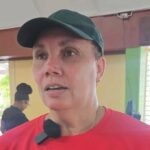Though not widespread, there have been cases in Barbados where witnesses have backed out of giving evidence, opted not to return to court, or reversed their positions on the stand.
These moments, few but deeply consequential, have stirred quiet concern among the public and within legal circles about how vulnerable witnesses really are.
Now, with a new law on the books to protect those who speak up in court, questions have been reignited on whether the justice system has the supporting tools to prevent intimidation, especially in a small, close-knit society.
In August, Barbados passed the Criminal Proceedings (Witness Anonymity) Bill, 2025, giving courts new powers to shield the identity of witnesses in criminal trials.
These include allowing evidence to be given remotely, using screens or voice distortion, and omitting personal details from witness statements.
The law was passed by both Houses of Parliament but has not yet been proclaimed.
While the legislation is being described as comprehensive in scope, legal experts and law enforcement insiders agree that it does not amount to a full witness protection programme and leaves critical gaps in the ability to shield people outside the courtroom.
Senior attorneys argue that anonymity is only part of the equation. King’s Counsel Andrew Pilgrim says Barbados must go further, calling for a dedicated Witness Protection Act that would allow for the relocation of witnesses, including internationally if necessary.
He said such legislation would be the logical next step to complement the current law, especially as crime becomes more organised and violent.
Other attorneys have raised concerns about the limits of anonymity in a society where “everybody knows everybody”, and warn that fear of being recognised, even with voice modulation or screens, may deter people from coming forward.
Compounding this fear is a controversial provision in the newly passed Police (Amendment) Act, which allows law enforcement to compel civilians to assist officers during operations. The penalties for non-compliance include a fine of up to $10 000, a year in prison, or both.
While the aim is to promote community involvement in crime prevention, some experts say the approach may damage already fragile public trust in the system.
Though he acknowledged the legislation’s rationale, Professor Dwayne Devonish, a behavioural scientist, said it risks making citizens feel coerced rather than protected, especially at a time when fear of reprisals is growing.
His concern is backed by the Fear of Crime in Barbados study, which showed that fewer than seven per cent of respondents believed the justice system effectively deters crime, and more than 80 per cent said community narratives fuel feelings of insecurity.
Even so, some Barbadians are still speaking up, at least anonymously.
According to Crime Stoppers, the number of tips has been rising in 2025.
Many people now prefer to submit reports through the P3 mobile app or the organisation’s website rather than call the traditional hotline.
But officials admit that public education around how the system works is still limited, and some people even bypass the system by sending tips directly to staff.
The organisation says any effort to increase witness safety, whether through anonymity in court or public education, should be welcomed. But they also stress that anonymity alone can’t address the wider fear of retaliation, particularly in highprofile cases or gang-related matters.
Across the region, Barbados is not alone in grappling with these issues.
While many Caribbean countries have passed laws to protect witness identities in court, few offer full protection programmes that include relocation, identity change, or long-term support.
Trinidad and Tobago operates one of the region’s most robust systems, with three dedicated agencies overseeing relocation, security and investigation.
Jamaica, since 2001, has run a structured programme with similar features, including international relocation when needed.
Guyana passed a Witness Protection Act in 2018, but it remains unimplemented.
Countries like Belize, St Kitts and Nevis, and St Vincent and the Grenadines rely on frameworks inspired by the Regional Justice Protection Programme (RJPP), a CARICOM agreement signed in 1999, but in practice, implementation has been uneven and limited.
Even among countries with functioning legal frameworks, funding, staffing, and witness reluctance remain common hurdles.
In many smaller nations, relocation can be particularly difficult to execute effectively, with most protection done on a case-by-case basis.
The RJPP, which was intended to support cross-border relocation and resource pooling, has never been fully operationalised despite a formal agreement over two decades ago.
Discussions were revived earlier this year by the Association of Caribbean Commissioners of Police, but concrete outcomes remain pending.
While Barbados’ new anonymity law has brought it more in line with regional best practice for courtroom protections, experts argue that without a second tier of protection, one that follows witnesses beyond the courtroom doors, citizens will continue to weigh the risk of speaking out against their own survival.
As the legal, psychological, and operational barriers pile up, the factor of fear remains and continues to shape how justice is pursued in Barbados and across the Caribbean. (SM)
The post The challenges of witness anonymity appeared first on Barbados Today.


